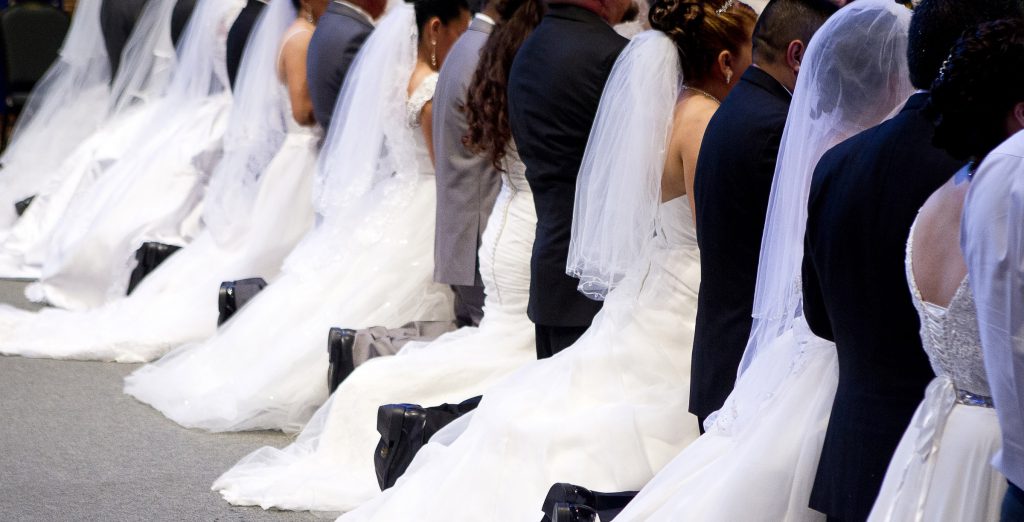A “convalidation ceremony” is a remedy for a marriage which has been impeded by some canonical defect. Most typically the ceremony takes place in private in the presence of the pastor of the parish with two witnesses. The convalidation could be one of two types: retroactive or regular.
In either case, the convalidation can remedy the defect of lack of canonical form, or validate a putative marriage where an impediment has been resolved and no longer applies.
Sometimes this is referred to as a “Blessing of a Marriage,” but in reality it is a new act of consent to be married by both spouses. They exchange wedding vows out loud. It can take place during Mass or outside of Mass.
There are cases where the Catholic spouse regrets having contracted an invalid marriage outside of the canonical form and wishes to have the marriage validated but the other spouse refuses to go through another ceremony. In that case, the Church in her mercy and wisdom can grant a retroactive validation (radical sanation) of the marriage per canon law:
“1. The radical sanation of an invalid marriage is its convalidation without the renewal of consent, which is granted by competent authority and entails the dispensation from an impediment, if there is one, and from canonical form, if it was not observed, and the retroactivity of canonical effects.
“2. Convalidation occurs at the moment of the granting of the favor. Retroactivity, however, is understood to extend to the moment of the celebration of the marriage unless other provision is expressly made.
“3. A radical sanation is not to be granted unless it is probable that the parties wish to persevere in conjugal life” (Canon 1161).

